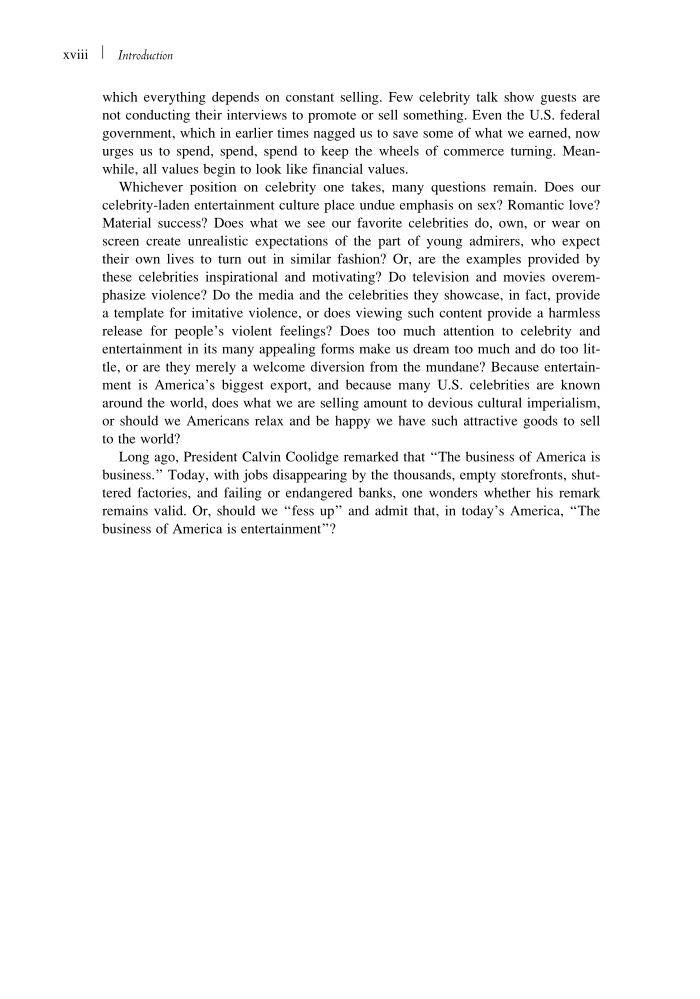which everything depends on constant selling. Few celebrity talk show guests are not conducting their interviews to promote or sell something. Even the U.S. federal government, which in earlier times nagged us to save some of what we earned, now urges us to spend, spend, spend to keep the wheels of commerce turning. Mean- while, all values begin to look like financial values. Whichever position on celebrity one takes, many questions remain. Does our celebrity-laden entertainment culture place undue emphasis on sex? Romantic love? Material success? Does what we see our favorite celebrities do, own, or wear on screen create unrealistic expectations of the part of young admirers, who expect their own lives to turn out in similar fashion? Or, are the examples provided by these celebrities inspirational and motivating? Do television and movies overem- phasize violence? Do the media and the celebrities they showcase, in fact, provide a template for imitative violence, or does viewing such content provide a harmless release for people’s violent feelings? Does too much attention to celebrity and entertainment in its many appealing forms make us dream too much and do too lit- tle, or are they merely a welcome diversion from the mundane? Because entertain- ment is America’s biggest export, and because many U.S. celebrities are known around the world, does what we are selling amount to devious cultural imperialism, or should we Americans relax and be happy we have such attractive goods to sell to the world? Long ago, President Calvin Coolidge remarked that ‘‘The business of America is business.’’ Today, with jobs disappearing by the thousands, empty storefronts, shut- tered factories, and failing or endangered banks, one wonders whether his remark remains valid. Or, should we ‘‘fess up’’ and admit that, in today’s America, ‘‘The business of America is entertainment’’? xviii | Introduction
Document Details My Account Print multiple pages
Print
You have printed 0 times in the last 24 hours.
Your print count will reset on at .
You may print 0 more time(s) before then.
You may print a maximum of 0 pages at a time.

































































































































































































































































































































































































